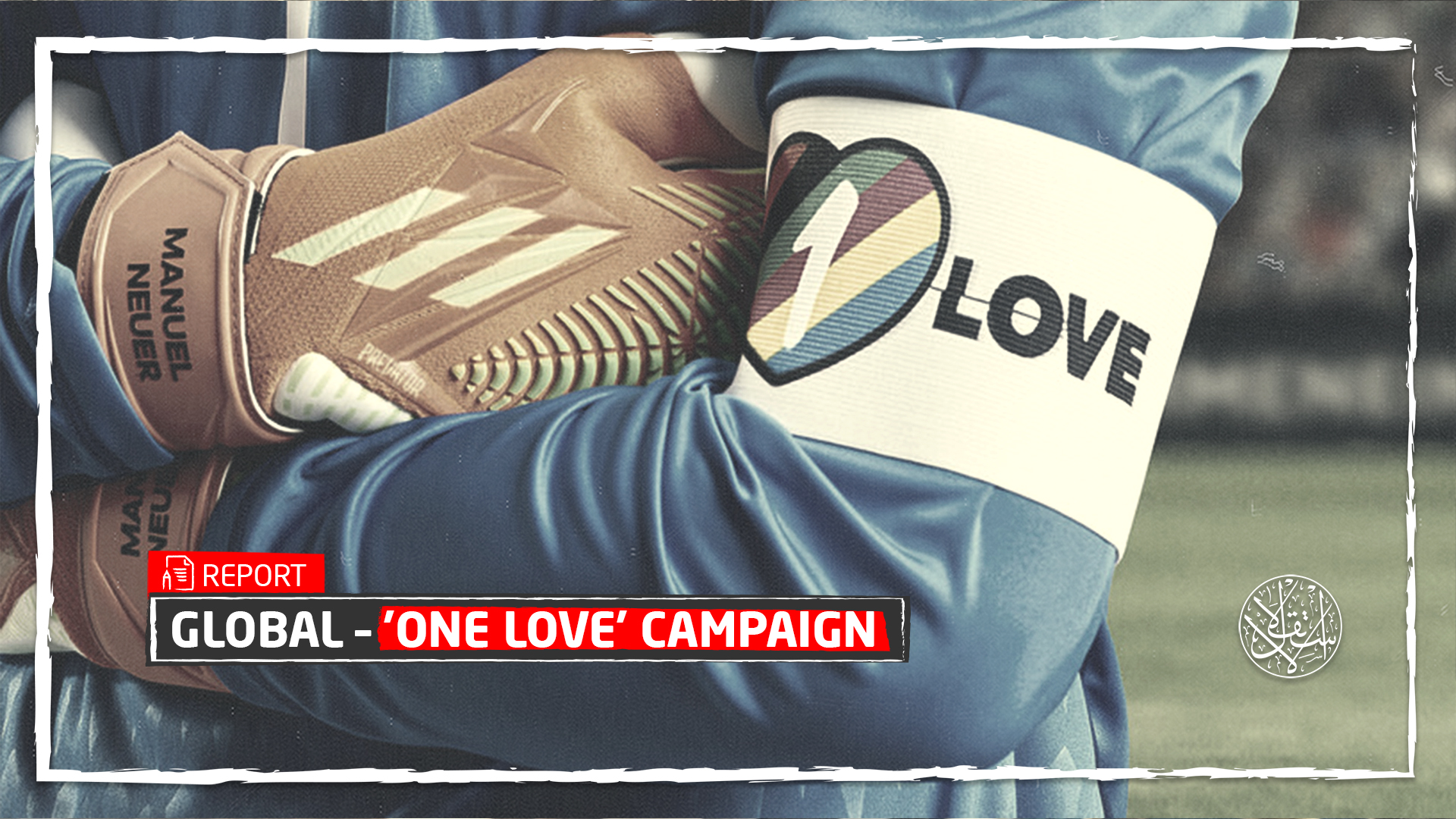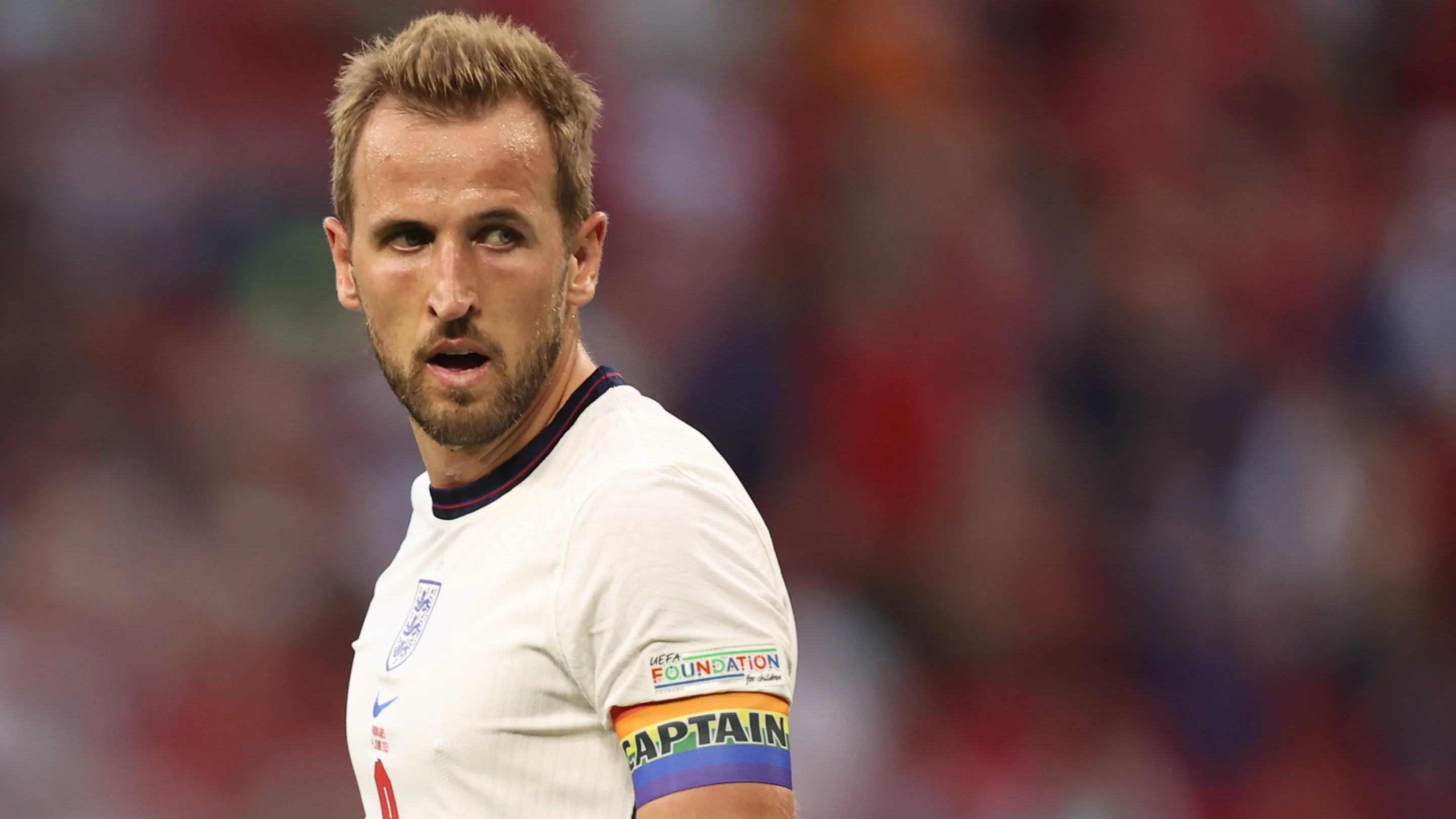'One Love' in Rainbow Colors: A New European Campaign to Embarrass Qatar Before the World Cup

The International Federation of Association Football (FIFA) was under European federations' pressure when the latter asked national team leaders to wear a heart-shaped rainbow badge during the World Cup in Qatar as part of their campaign "against discrimination."
France and Germany, winners of the last two World Cups, are among the eight 13 European confederations that will participate in the World Cup in Qatar in the "One Love" campaign, which began in the Netherlands.
FIFA rules prohibit teams from wearing special armband designs at the World Cup and insist that only the badges proposed by FIFA must be used.
However, the International Federation is likely to take a decision supporting some of the most influential federations, which may be embarrassing for Qatar, where same-sex relations are considered a criminal offense.
'One Love' Campaign
Ten European countries will participate in the One Love campaign to call for integration and anti-discrimination.
Holland, England, Belgium, Denmark, France, Germany, Norway, Sweden, Switzerland, and Wales are among the countries that will support the campaign.
The leaders of eight European teams, including world champion France, will wear heart-shaped badges featuring six parallel stripes, different colors from the gay flag, to promote messages "against discrimination," their national federations announced on Wednesday.
The Dutch Football Association, the leader of the campaign, chose the six colors to represent all legacies, backgrounds, genders, and sexual identities. The badges will be worn during the 2022 World Cup in Qatar, where same-sex relations are a criminal offense.
Wearing symbolic badges is the latest way for players to spread political messages related to the World Cup hosted by Qatar, after issues of maltreatment of migrants working in the construction of stadiums prepared for this event, which have been a subject of controversy for nearly a decade.

The badge campaign was launched one day after the Emir of Qatar's speech at the United Nations General Assembly in New York and his promise to host the World Cup without discrimination.
"The Qatari people will welcome football fans of all stripes with open arms," Sheikh Tamim bin Hamad Al Thani said in a speech to world leaders.
According to ESPN, "the FA's support will begin on Friday's Nations League match against Italy in Milan when captain Harry Kane will wear the OneLove armband featuring a heart containing colors representative of all backgrounds."
"I am honored to join my fellow national team captains in supporting the important OneLove campaign," Kane said. "As captains, we may all be competing against each other on the pitch, but we stand together against all forms of discrimination.
"This is even more relevant at a time when division is common in society. Wearing the armband together on behalf of our teams will send a clear message when the world is watching."
Embarrassing Qatar
Qatar was a hugely controversial choice for the finals when it was awarded the 2022 tournament in 2010, not just because same-sex activity is not accepted there, but also for its consideration as a criminal offense with the possibility of a prison sentence for adults convicted of being gays or lesbians.
As there is no recognition of civil partnerships in the Gulf states or rights to campaign for LGBT+, human rights groups, including Amnesty International and Human Rights Watch, have recently highlighted these issues, including the treatment of migrant workers.
Mark Bullingham, chief executive of England's FA, said this week that LGBTQ+ groups are still anxious about their conditions in Qatari hotels and streets, and they call for more information about how laws will be enforced during the World Cup.

"We obviously have Three Lions Pride, it's part of a key part of our supporters group," Bullingham said. "So, we've met with them, and I understand quite a few of them won't be going out. The message we have had really clearly from Qatar, overall, is that everyone is welcome.
"I think where [LGBTQ+ groups] have been a bit frustrated is that they've asked several follow-up questions and not yet got the answers. And I think a few of them feel like they have timed out in terms of getting information they need to know," he added.
"We've asked the question and lots of meetings, whether it's with the security teams on the ground, and so on, and they will certainly get the right answers, but there's still more information needed. So, what does accommodation look like and so on. I think those communities have been clear that they haven't got all the information they need to make that decision."
Paradoxes
Since becoming the first Arab and Islamic country to hold the first FIFA World Cup, Qatar has been facing cultural changes that were not taken into account 10 years ago.
In his interview with Al-Estiklal, former Tunisian player and sports critic Neji Suicy said, "Qatar did not expect many cultural changes concerning campaigns supporting homosexuality in the World Cup on its soil."
Suicy stressed that NGOs would work to spread propaganda in support of LGBTQ people in the Arab world.
He added: "Qatar is facing campaigns of international pressure from groups in the United States, the United Kingdom, and Western countries, particularly the Netherlands that created this initiative; the aim is to accept and declare its tolerance and compatibility with homosexuality by all means, and I think it is paying the price of organizing the World Cup.
"Despite Russia's rejection of homosexuality, it was not exposed to such campaigns when it organized the 2018 World Cup."
He continued: "Russia also puts deterrent penalties against homosexuals and its supporters, and it was not under this pressure, this reminds us again of the ongoing psychological war against Muslims, I think."
In another interview, sports critic Mohammad Abbasi stressed to Al-Estiklal that "attempts to impose certain values on societies are part of the old plan of globalization, and football and sports should not be a justification for accepting behavioral and religious deviations."
He added: "Imagine if this happened only 10 years ago, how it would be dealt with, this makes our view of the future frightening, and we must take all our precautions to protect our identity and our religious and cultural beliefs."










